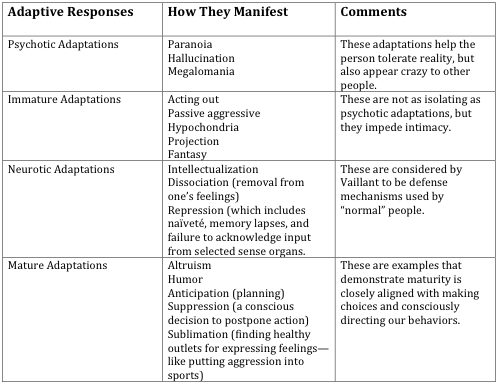
In one of my previous articles I mentioned the Grant Study, which involves researchers at Harvard who have been asking, “Is there is a formula for the good life?” They have come up with some interesting and helpful conclusions as a result of endlessly examining, questioning, testing, and measuring 268 students over a span of eight decades.
The purpose of the Grant Study was not to learn about pathology, but rather to explore the question of “how to live well.” The study looks at men (disappointingly it does not include women) who entered Harvard in the years 1942-44. Clearly, these men were advantaged by the very fact that they were students at Harvard. Yet, almost a third of these men demonstrated signs of mental illness before they turned 50 years old.
This brings us to what I see as the most interesting part of the study. Regardless of our early life advantages or disadvantages, we will encounter challenges, disappointments, and turmoil in our lives. So the question is, “How well do we adapt?”
How well do you adapt to stress or upsets in your life?
What are your ways of adapting?
- Do you act out?
- Do you project onto others?
- Do you become passive aggressive?
- Or, do you intellectualize—rationalize?
- Or, do you disconnect from your feelings?
- Or, do you rely on humor, and plan for tomorrow?
One of the key researchers behind the Grant Study is George Vaillant. His primary way of interpreting findings from the study is to look at how well the men adapt to “pain, conflict, or uncertainty.” Our ability to adapt is something Freud identified as our “defense mechanisms.” These are unconscious ways of responding (adapting) to events in our lives. Some of us do this well, some of us do this poorly.
For many years now I have advocated that the key to a good life is to develop maturity, which I see as a healthy adaptive response. In another article I provide a fuller description of maturity. But in short, I see it as our ability to take the long view, consider multiple perspectives, and appropriately express ourselves. To my delight, when I came across the Grant Study, I discovered that George Vaillant categorizes people who adapt well as “mature.”
Vaillant goes into more detail by creating four categories that describe different kinds of adaptive responses:
How mature are you?
As you can see, not only does Vaillant categorize healthy adapters as “mature,” but this is largely how he defines mental health leading to a good life. “Much of what is labeled mental illness,” Vaillant writes, “simply reflects our ‘unwise’ deployment of defense mechanisms. If we use defenses well, we are deemed mentally healthy, conscientious, funny, creative, and altruistic. If we use them badly, the psychiatrist diagnoses us ill, our neighbors label us unpleasant, and society brands us immoral.”
Instead of looking at a person like we might look at a photograph, Vaillant looks at people more like he’s watching a movie. He sees people as unfolding stories—maturing over time. In fact, “as adolescents, the Grant Study men were twice as likely to use immature defenses as mature ones, but in middle life they were four times as likely to use mature defenses—and the progress continued into old age. When they were between 50 and 75, Vaillant found, altruism and humor far more prevalent, while all the immature defenses grew more rare.”*
To me, this says there is hope “of how mature adaptations are a real-life alchemy, a way of turning the dross of emotional crises, pain, and deprivation into the gold of human connection, accomplishment, and creativity.”*
So I encourage you to stop and think about the ways you adapt. Most of us have developed our defense mechanisms without ever stopping to ask, “Do these responses still serve me well?” If not, we can change them.
In summary, don’t blame others (projection) when you behave immaturely. To do so is just piling on another layer of immaturity. Instead, strive to become neurotic . . . this is the next step in your development. Once you arrive squarely in your neuroses, you are only a short distance from becoming mature. I urge you to take that next step . . . because maturity is the key to living a good life.
* quotes from a Joshua Wolf Shenk article in The Atlantic, What Makes Us Happy?


No comments yet.